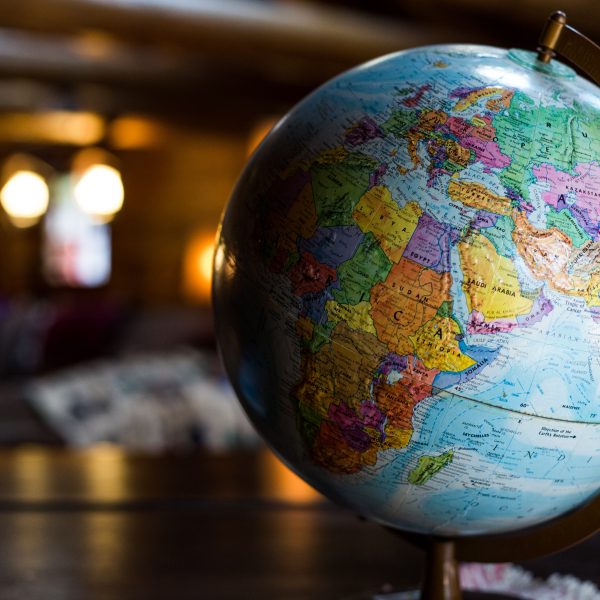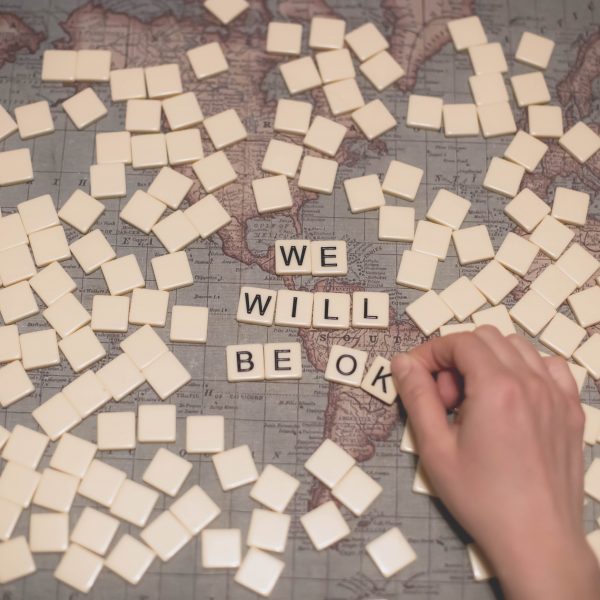UNESCO webinar paints ECEC as ‘the forgotten child’ in society, calls for more attention

A recent UNESCO webinar, focusing on education in the time of COVID-19, shed light on the importance of early childhood education and care (ECEC) to ensure that the learning and wellbeing of young children is given due consideration when educational and care services are disrupted, with a special attention given to vulnerable young children.
Held on 15 July 2020, under the high patronage of Her Royal Highness Princess Laurentien of the Netherlands, UNESCO Special Envoy on Literacy for Development, the webinar noted that more than 1.5 billion students in over 180 countries, of whom 155 million children at preschool level, have been affected by the largest disruption to education since the creation of the United Nations.
More than 1,000 participants joined the session, which included global leaders, country policymakers, ECEC practitioners and education partners.
Global impact of COVID-19 on early childhood education
The closure of schools and other institutions that provide social protection, health, nutrition, learning and socio-emotional nurturing to young children represents “an immense threat to their development potential,” the participants heard.
In response, UNESCO, together with a number of partner organisations, will be launching the #SaveOurFuture campaign this month to protect and prioritise education as the key to the recovery – and the best investment for our future.
Central to this campaign is a shift in public awareness, Stefania Giannini, UNESCO Assistant-Director General for Education said, viewing ECEC as “an equaliser and a changer” and calling for a paradigm shift in education.
Mr Gwang-Chol Chang, Chief of Education Policy Section at UNESCO presented an overview of the global impact of COVID-19 on early childhood education, which showed the findings of global surveys and consultations that UNESCO conducted, in collaboration with UNICEF and the World Bank, regarding the impact of COVID-19 on education systems and more particularly on early childhood education.
Although some countries have been taking measures to support families, caregivers and children, such as financial support, psychological counselling, and emergency childcare service available to frontline volunteers, the general observation is that during school closures, “pre-primary education was relatively neglected compared to other levels of education”.
His comments mirror those made by Her Royal Highness Princess Laurentien of the Netherlands who said “early childhood development has always been a blind spot in our pre-COVID societies and the pandemic has shown how vulnerable young children are.”
“Why is ECEC the forgotten child in our societies?” the Princess asked.
Country experiences
A ministerial round-table gave an opportunity for Ministers of Education and their representatives from the different regions of the world to present their experiences and priority actions in this area.
In Seychelles, for example, the Minister presented an effective communication plan implemented and strong commitment of ECEC leaders which contributed to mobilise and engage all stakeholders, while the Minister of Cambodia explained how public-private partnership was built to ensure learning continuity, in the use of online platforms, social medial and TV and Radio channels for children with no access to the internet, and even paper-based material for those who did not have access to any distance learning solution with particular attention to children from vulnerable groups.
From the Arab region, the representative of the Minister of Qatar explained that the State has invested in ECEC, by turning to distance education, focusing on support to parents and children and support to children with additional needs, through special channels of communication.
Saudi Arabia, as chair of G20 which has ECEC as a theme in its agenda, shared the initiative of virtual kindergarten for children three to six years of age, initiated before and amplified during the COVID-19 crisis.
Call for action
Her Royal Highness Princess Laurentien of the Netherlands called on all stakeholders present to have a discussion at a strategic level.
“Early childhood development should no longer be considered only a mere educational issue and should not be put on the sidelines of the discussions and strategy for economic recovery. It should be part of the discussions in multilateral fora because it is a strategic option, the best investment for societies,” she said.
“Recovery cannot be just about investing in companies – it must also be about investing in the citizens of tomorrow.”
Two actions were announced to start with:
- Train some 200,000 early childhood teachers and educators – including through online and offline platforms and sharing of already available pedagogical resources – with the support of Global Education Coalition.
- Agree on a global strategy for ECEC with effective collaboration, building alliances and engaging in an innovative dialogue.
Reacting to the Call for Action, UN agencies and International NGOs representatives, from UNICEF, The World Bank, WHO, ILO, Right to Play, OMEP, Right to education Initiative, Save the Children and ECDAN, shared insights and commitments in this area, all recognising that it is critical time to put ECEC as a priority in the agenda for recovery.
Ms Giannini confirmed UNESCO’s willingness to work with all the partners present to identify and carry out concrete actions and stressed her own impatience to act. She welcomed the fact that the webinar had made it possible to gather the commitment of important stakeholders to work together.
In her closing remarks Her Royal Highness Princess Laurentien of the Netherlands stressed her impatience for action and call for introspection from ECCE stakeholders and called upon UNESCO, as the lead global UN organization for education, to call for a dialogue on how to act concretely to make ECEC at the core of the discussion on COVID-19 recovery strategies.
To learn more, please visit the Global Education Coalition website, here.
Popular

Quality
Practice
Provider
Workforce
Reclaiming Joy: Why connection, curiosity and care still matter in early childhood education
2025-07-09 10:00:07
by Fiona Alston

Policy
Practice
Provider
Quality
Research
Workforce
Beyond the headlines: celebrating educators and the power of positive relationships in early learning
2025-07-07 10:00:24
by Fiona Alston

Workforce
Policy
Quality
Practice
Provider
Research
ECEC must change now, our children can’t wait for another inquiry
2025-07-02 07:47:14
by Fiona Alston













